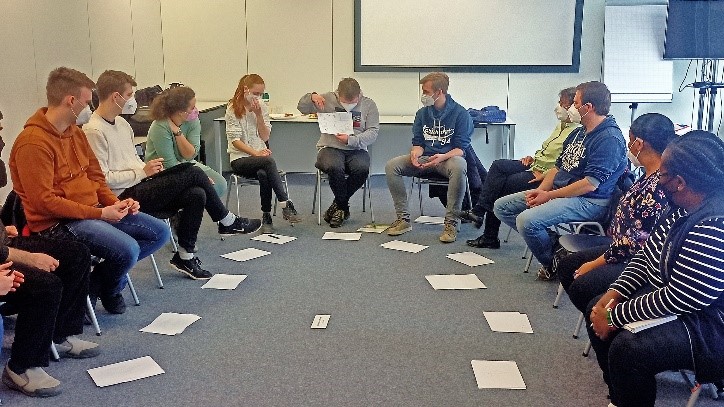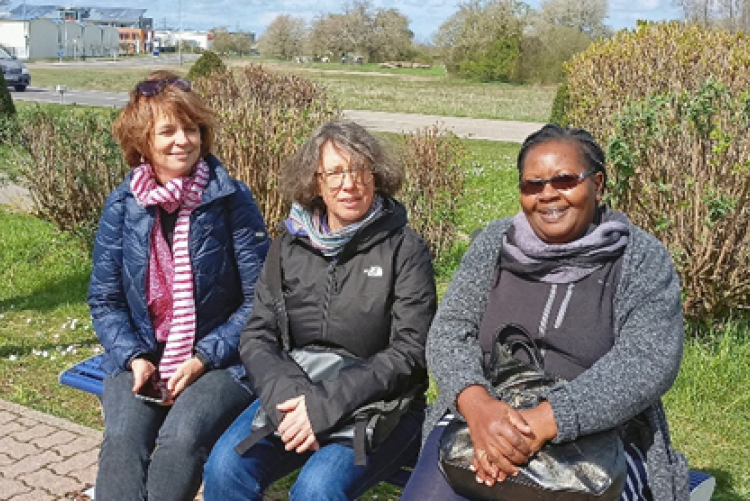Objective of the Project: Learning from each other in preparation of digital teaching materials for blended learning at the three partnering university locations namely Germany, South Africa and Kenya
The "Cognitive Geomatics - digital teaching to raise awareness of intercultural differences in spatial awareness using the example of Germany, South Africa and Kenya" is a project as part of the Baden-Württemberg-STIPENDIUM for students - BWS plus, a program of the Baden-Württemberg Foundation. The project will be financed over three years from March 2022 until February 2025 to a tune of €140,000.
The rapid development of information and communication technology, space technology together with the processing possibilities in the cloud computing environment leads to an exponential increase in data. Going forward, this big data will be evaluated more using its spatial reference, which geomatics promises a big boom for its methods. This in turn means that these methods are increasingly being used not only by geomatics specialists- a multidisciplinary approach. At the same time, it is becoming increasingly clear that simply locating objects using geographical coordinates does not do justice to the subjective experience of spaces or the living environment. With regard to the Space versus Place debate, the question arises as to how we think about and perceive physical space (our inner maps / mental maps), and the use of high-tech methods to measure, analyze and map our environment (in virtual reality) interact, which can be described as cognitive geomatics. The respective cultural differences are also of interest in the training.
Karlsruhe University of Applied Sciences (HKA) and the University of Pretoria (UP, South Africa) have successfully partnered and been involved in a project on "Geomatics & Participation". The network is being expanded to include University of Nairobi (UoN, Kenya) with the aim of opening up more interdisciplinary fields in the thematic debate. The Department of Geospatial and Space Technology will take the leadership role. This will lead to expanding the cooperation and exchange not only to geo(infor)matics but also to social science and cultural media management students.

About the Baden-Württemberg-STIPENDIUM
The Baden-Württemberg-STIPENDIUM promotes the international exchange of qualified students and young professionals. Since 2001, more than 25,000 young people from Baden-Württemberg have been able to gain experience abroad or young people from abroad have been able to spend some time in Baden-Württemberg. Around 1,500 scholarships are awarded every year as part of the Baden-Württemberg-STIPENDIUM.
The Baden-Württemberg-STIPENDIUM program for students – BWS plus
With the BWS plus program, the Baden-Württemberg Foundation supports innovative cooperation between universities and other international institutions. The program, which is endowed with around 1.2 million euros annually, has been advertised since 2011. Since then, more than 100 BWS plus projects at universities in Baden-Württemberg have been supported.
The Baden-Württemberg Foundation
The Baden-Württemberg Foundation is committed to a vibrant and liveable Baden-Württemberg. It paves the way for cutting-edge research, a wide range of educational measures and responsible interaction with our fellow human beings. The Baden-Württemberg Foundation is one of the largest operational foundations in Germany. It is the only one that invests exclusively and impartially in the future of Baden-Württemberg - and thus in the future of its citizens.
- Log in to post comments

